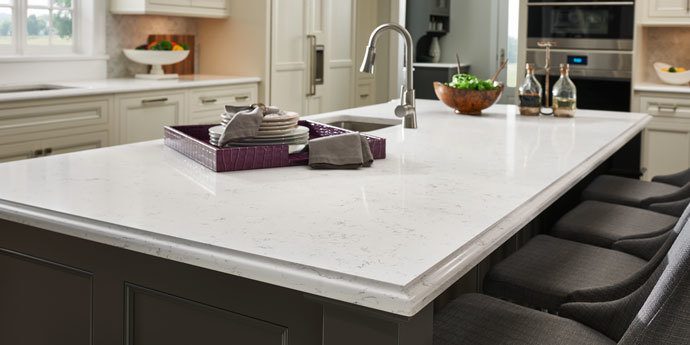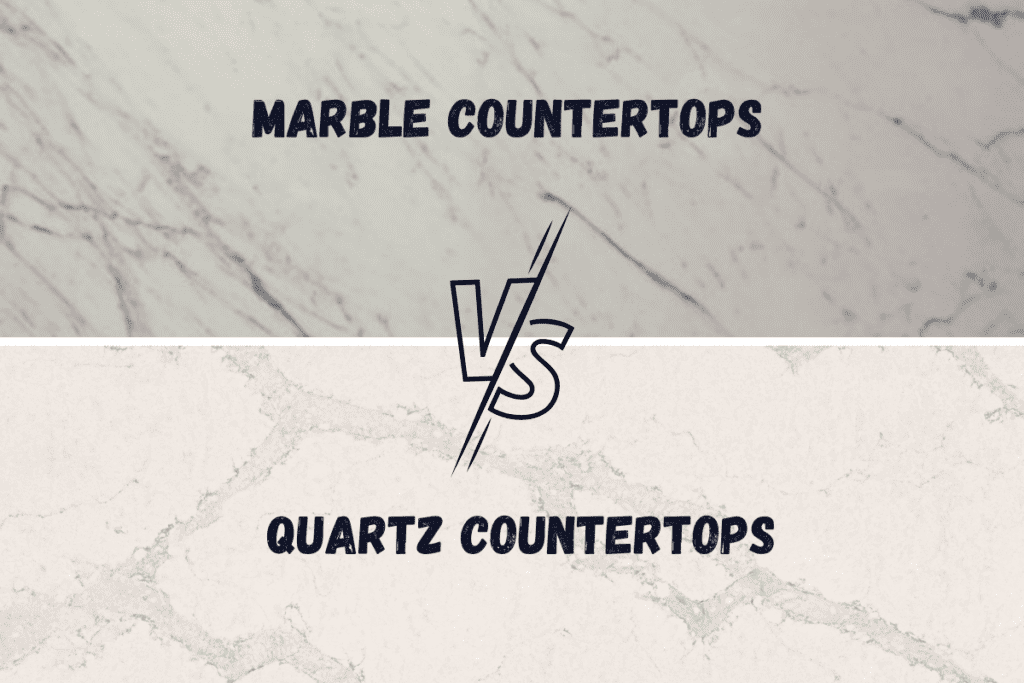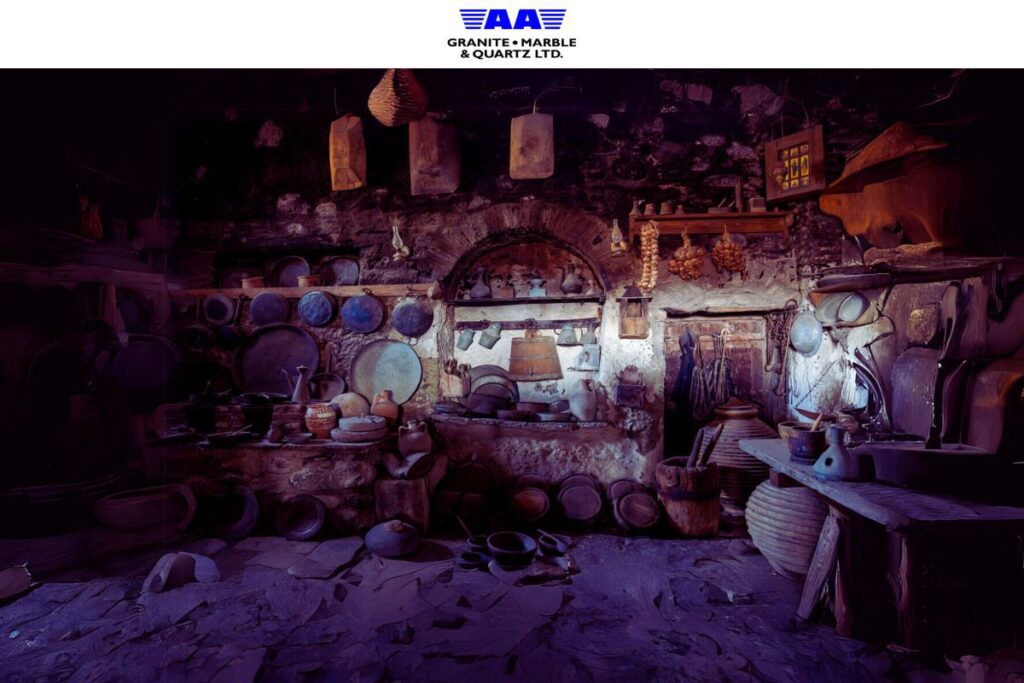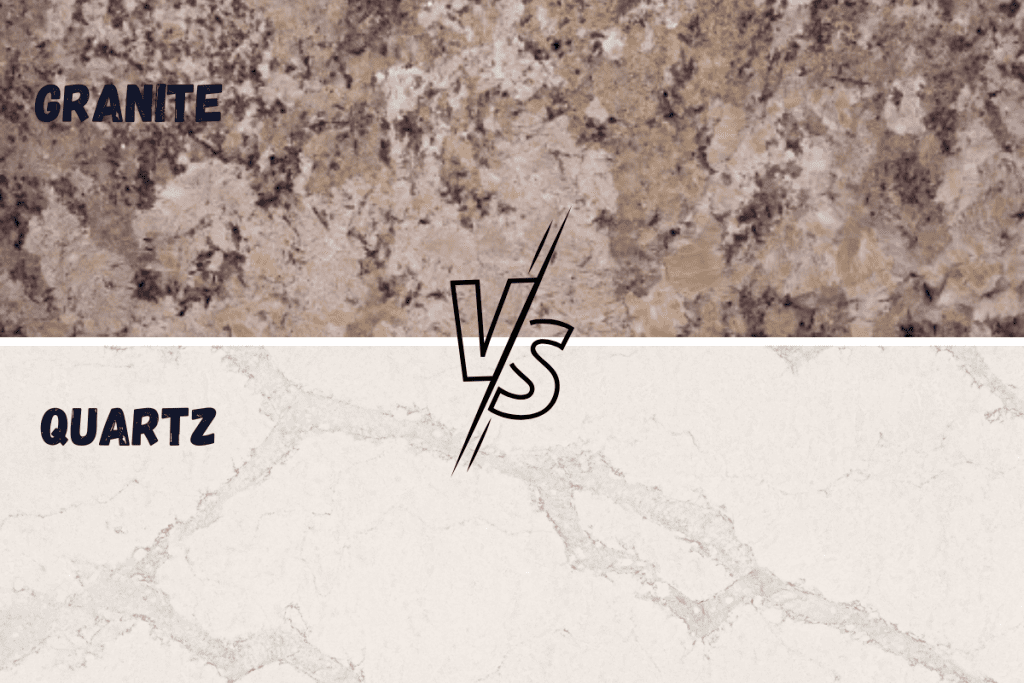Lets weigh the pros and cons of Quartz countertops!
Pros:
- You will always get a consistent design throughout the whole slab of quartz.
- You can find a much wider range of colours than you can with granite.
- The durability of quartz is much stronger than marble, and a little more flexible than granite.
- Quartz countertops are not porous, therefore it does not stain or harbor bacteria.
- Does not contain natural fissures or pits.
- Quartz countertops do not require sealing.
- Said to be scratch resistant (Be careful anyways!)
Cons:
- Quartz countertops are not heat resistant, burn marks can be left on the surface if you are not careful.
- If your kitchen requires a seam, it is usually harder to hide in quartz opposed to granite.
What else do you need to know about quartz?
Quartz is a manufactured product made from 90% crushed up quartz and 8-10% resins and pigment. Since it is not a natural stone, it does not have pores and therefore does not need to be sealed!
While the maintenance of your quartz countertops is low, you still need to consider what affects the surface of it.
Things to look out for:
- Do not use any household cleaners on your quartz countertops such as bleach, vinegar, ammonia, etc. It WILL eat away the polish and you cannot fix it without creating a dip in the surface.
- Do NOT put your hot pots on your quartz countertops. There will be a round burn mark left on your quartz that you will not be able to undo!
- Quartz countertops are said to be scratch resistant, but to avoid any unintentional markings, please use a cutting board while preparing food.
- Clean up any spills on your quartz countertops right away! Even though quartz is not porous and cannot stain, if a spill is left overtime it has the potential to stain or make the surface appear dull, especially if the liquid is acidic!
If you have any questions regarding quartz countertops, call of email us today!




